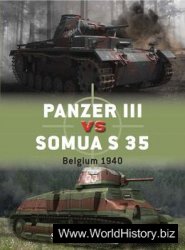Nam since 1957. Their principal mission was to develop paramilitary forces among the ethnic minorities. Between 1961 and 1965 the Green Berets established over 80 ciDG camps in the central highlands. The Green Berets in Vietnam reached a peak of 3,700 in 1968. WST. See also civilian
IRREGULAR DEFENCE GROUPS.
Greer. American destroyer (incident, September 1941). During the period of American “all aid short of war” to Britain in the Atlantic, Greer was taking supplies to the US garrison in Iceland when British aircraft reported a U-boat. Greer located the submarine, which fired a torpedo after being bombed by the British aircraft. Greer dropped depth charges and was missed by another torpedo. Roosevelt called this an unprovoked attack.
Greim, Field Marshal Robert Ritter von (1892-1945). Ger. A World-War-I pilot, later an able Air Corps commander in France, 1940, and on the East Front, Greim was summoned to besieged Berlin by Hitler. Arriving in a light aircraft piloted by Hanna Reitsch on April 24 1945, he was promoted Field Marshal and appointed c-in-c of a non-existent Luftwaffe, succeeding Goring. Captured, Greim committed suicide.
Grenade. Defensive (shrapnel) and offensive (blast) infantry bomb thrown or fired by rifle.
Grey, Viscount, of Falloden (Sir Edward Grey) (1862-1933). Br. A Liberal Imperialist MP who supported Second Boer War, he recognized the threat posed by growing German imperialism and, when the Liberals came to power in 1906, committed himself as Foreign Secretary to forging precautionary alliances, notably the Entente Cordiale with France. Grey secretly sanctioned Anglo-French “Military Conversations” from 1906 which were instrumental in getting the bef across to France within days of the outbreak of war in August 1914. He made the famous comment, on August 3 1914: “The lamps are going out all over Europe; we shall not see them lit again in our lifetime”. MH.
Grierson, Lt Gen Sir James
(1859-1914). Br. While serving as Director of Military Operations in the reorganized War Office from 1904 to 1906, Grierson was influential in shifting the focus of British military strategy away from India towards possible cooperation with the French Army in the event of a future war with Germany. He was centrally involved in the staff conversations with the French early in 1906 which helped to shape the British Army’s role on the Western Front in World War I. In 1914, Grierson went to France as commander of II Corps in the bef, but collapsed and died suddenly on his way to the front on August 17 1914. PJS.
Grivas, Gen George (1898-1974). Greek. Regular officer in Royal Hellenic Army, 1941-53. On retirement, settled in Cyprus, became leader of eoka throughout its terrorist campaign for Enosis (union between Greece and Cyprus). He was appointed General-in-Command of the Greek Cypriot National Guard, 1960-67, when he went back to Athens. Returned to Cyprus in 1971 to prepare a coup against the Makarios Government. He died there in hiding after failing to seize power. Adopted the nickname of “Dighe-nis” in 1955.
Gromyko, Andrei (b. l910). Russian. Diplomat who served as ambassador to the US during World War II and as Foreign Minister from 1953 to 1985.
Groner, Gen Wilhelm (18671939). Ger. In October 1918, Groner (distinguished as the German army’s transport supremo in the 1914 mobilization) replaced Ludendorff as Hindenburg’s deputy, mediating between the high command and Kaiser Wilhelm in the latter’s abdication. Irredentist animosity caused his resignation in 1919. A mainstay of the Weimar Republic, he resigned the ministries of Defence and the Interior in 1932 when Hindenburg failed to support his anti-Nazi policies.
Group of Soviet Forces Germany (GSFG). The Soviet garrison in the German Democratic Republic and the first echelon in any attack on NATO’s Central Front. Its hq is at Zossen-Wunsdorf and it deploys five armies. Third Shock Army (three Guards tank divisions and a motor rifle division) at Magdeburg; Second Guards Tank Army (a Guards tank division, a tank division, a Guards motor rifle division and a motor rifle division) at Fiir-stenberg; Eighth Guards Tank Army (a Guards tank division and three Guards motor rifle divisions) at Weimar; First Guards Tank Army (two Guards tank divisions, a tank division and a Guards motor rifle division) at Dresden; and Twentieth Guards Army (three Guards motor rifle divisions) at Eberswalde. There is an artillery division, an air assault brigade, two tactical missile brigades, five artillery brigades and five attack helicopter regiments. It has a strength of some 380,000 men and is supported by some 685 combat aircraft of the “Air Forces of the gsfg”. EJG.
Gruenther, Gen Alfred M
(b. l899). US. Commissioned in 1918, Gruenther attracted increasing attention within the US Army as a highly talented staff officer, performing particularly well during the large-scale manoeuvres held in the US in September 1941. Later that year he succeeded Eisenhower as cos Third Army, and in the summer of 1942 went to London as Deputy cos of Allied Force Headquarters, serving under Eisenhower in the planning of Operation “Torch”. In January 1943 the US Fifth Army was formed in Algiers, under the command of Lt Gen Mark W Clark, and Gruenther was appointed as its cos, playing a leading part in the planning of the Allied landings.




 World History
World History









